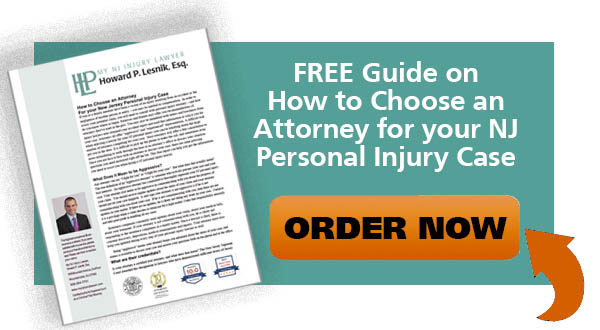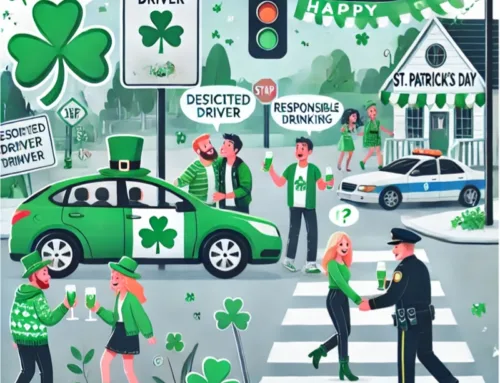After being involved in an accident that another driver caused, you already have more than enough on your mind: are you or your loved ones injured? How badly damaged is your vehicle? How much work are you going to miss, and will you be unable to fulfill other responsibilities, such as childcare, for a period of time? Then, while you’re grappling with these stressful matters and in pain from your injuries, you get a phone call. It’s a friendly-sounding insurance adjuster representing the person who caused your accident. They sound sympathetic to your troubles and apologize for disturbing you, but they just need to ask you a “few, routine questions,” and of course this conversation is being recorded, and that’s all right with you, isn’t it?
Tell them NO.
 No matter what they say (and they will be very persuasive, and may even lie outright to you), you are not required by law to give a recorded statement to the other driver’s insurance company. Giving a recorded statement offers you no benefit, and has every possibility of actually endangering your claim, especially if you end up needing to pursue litigation. Insurance companies are practiced masters of twisting innocuous statements to their advantage. The point of a recorded statement is to get a record that can be played in front of a judge and jury, of you saying something that can be interpreted to contradict some element of your injury claim.
No matter what they say (and they will be very persuasive, and may even lie outright to you), you are not required by law to give a recorded statement to the other driver’s insurance company. Giving a recorded statement offers you no benefit, and has every possibility of actually endangering your claim, especially if you end up needing to pursue litigation. Insurance companies are practiced masters of twisting innocuous statements to their advantage. The point of a recorded statement is to get a record that can be played in front of a judge and jury, of you saying something that can be interpreted to contradict some element of your injury claim.
They might try to get you to say something that can be construed as an admission of fault or speculate about details of the accident that you’re not sure about (how fast someone was going, how far away another vehicle was, etc.) so they can point out the “inconsistency” in your story later. Knowing that many common automotive injuries – such as those affecting the neck, back, and spine – often do not present symptoms until several days after the accident that caused them, they may call you shortly after the crash and try to get you to say that you aren’t injured, or not seriously injured. The insurance adjuster will take advantage of your stress, distraction, anxiety, and even confusion caused by the pain medication you’ve been prescribed for your injuries, to get a recording of you saying something potentially damaging to your case.
The insurance adjuster will also probably try to trick you into giving permission for him to gain access to information beyond the scope of your accident. The only medical information of yours that the insurance company is entitled to is what directly pertains to the treatment you received for your accident injuries, but many insurance adjusters try to get claimants to sign a full release of all their medical records, which would allow them to pry into your past medical history in search of other injuries or conditions that they could try to blame for your accident-related symptoms instead. The insurance adjuster might prime you with a few simple questions “for their records” and ask for your phone number, your driver’s license number, your vehicle’s license plate… and then ask for your Social Security Number. With your SSN, the insurance adjuster could nose around in your financial history and other private details, in search of materials they can use to paint you as a fraudster.
You’re completely within your rights to refuse to give a recorded statement to the other driver’s insurance company but saying “no” in situations like this isn’t always easy. Insurance adjusters are trained to be persuasive and persistent. They may even lie about it being mandatory. You may need to stand your ground and say, “I do not consent to give a recorded statement. I plan to hire an attorney to represent me in this matter. When I have done so, you can contact my attorney for any information you require.”
Be prepared for the insurance adjuster to try to talk you out of hiring a personal injury attorney. Insurance companies know that injured claimants are more likely to win their cases, and that successful claims are more likely to secure larger settlements, if represented by an experienced personal injury lawyer. There’s a certain irony to hearing an insurance adjuster talk about how expensive and unnecessary hiring a lawyer is, when in reality it’s only expensive for the insurance company that’s going to have to pay out your settlement.
Even if you don’t plan to hire an attorney, perhaps because you don’t think you’ve been seriously injured, it’s still wise to avoid giving a recorded statement. Tell the adjuster that you don’t consent to recording, and do not even provide a non-recorded statement. They can take notes on what you say, but those notes aren’t admissible in court in the same way as a recording of your own voice. And the adjuster will use your words against you to try to minimize your injuries and potential settlement. Even if the adjuster asks how you are doing and you respond by saying, “good” or “better”, the adjuster will argue you are not injured.
Contact MyNJInjuryLawyer Howard P. Lesnik
If you or a loved one suffered an injury in an accident in NJ, you should contact an attorney familiar with handling these claims. An experienced NJ Injury Lawyer will know how to obtain medical records, videos, photographs, experts, locate witnesses and contact the insurance company so you can make a claim for your injuries.
My NJ Injury Lawyer Howard P. Lesnik, Esq. offers complimentary strategy sessions to address any issue or questions you may have for your injury claim in NJ.
Please contact NJ Injury Lawyer Howard Lesnik, Esq., immediately if you were involved in an accident. I personally handle NJ personal injury cases on a regular basis. Please contact me now by email, by phoning 908.264.7701, or by completing the form to the right to schedule your complimentary 30-minute strategy session. Call me direct and I will answer 5 questions that you have about your potential claim.







